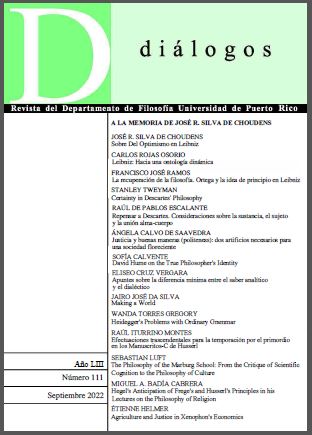Abstract
The main interpretations of Xenophon’s Economics consist in reading it either as an economic treatise, or as an ethical dialogue with no economic content. In this paper, in the wake of L.A. Dorion’s approach, I claim that it is possible to reconcile both readings, that is, the economic content of the text and its Socratic nature –i.e., its ethical purpose and its dialogical form. To do so, I focus on a specific passage of the Economics, in which Socrates explains that “earth teaches justice”. I first show the limits of the Straussian-inspired readings according to which references to agriculture are purely allegorical and ironic in Socrates’ mouth, and agriculture is alien to ethics. Second, I refer to other passages of the Economics and other texts by Xenophon to demonstrate that, and explain why, his Socrates considers household management (oikonomia) in general and agriculture in particular as activities propitious to individual and collective ethics.

This work is licensed under a Creative Commons Attribution-NonCommercial 4.0 International License.

